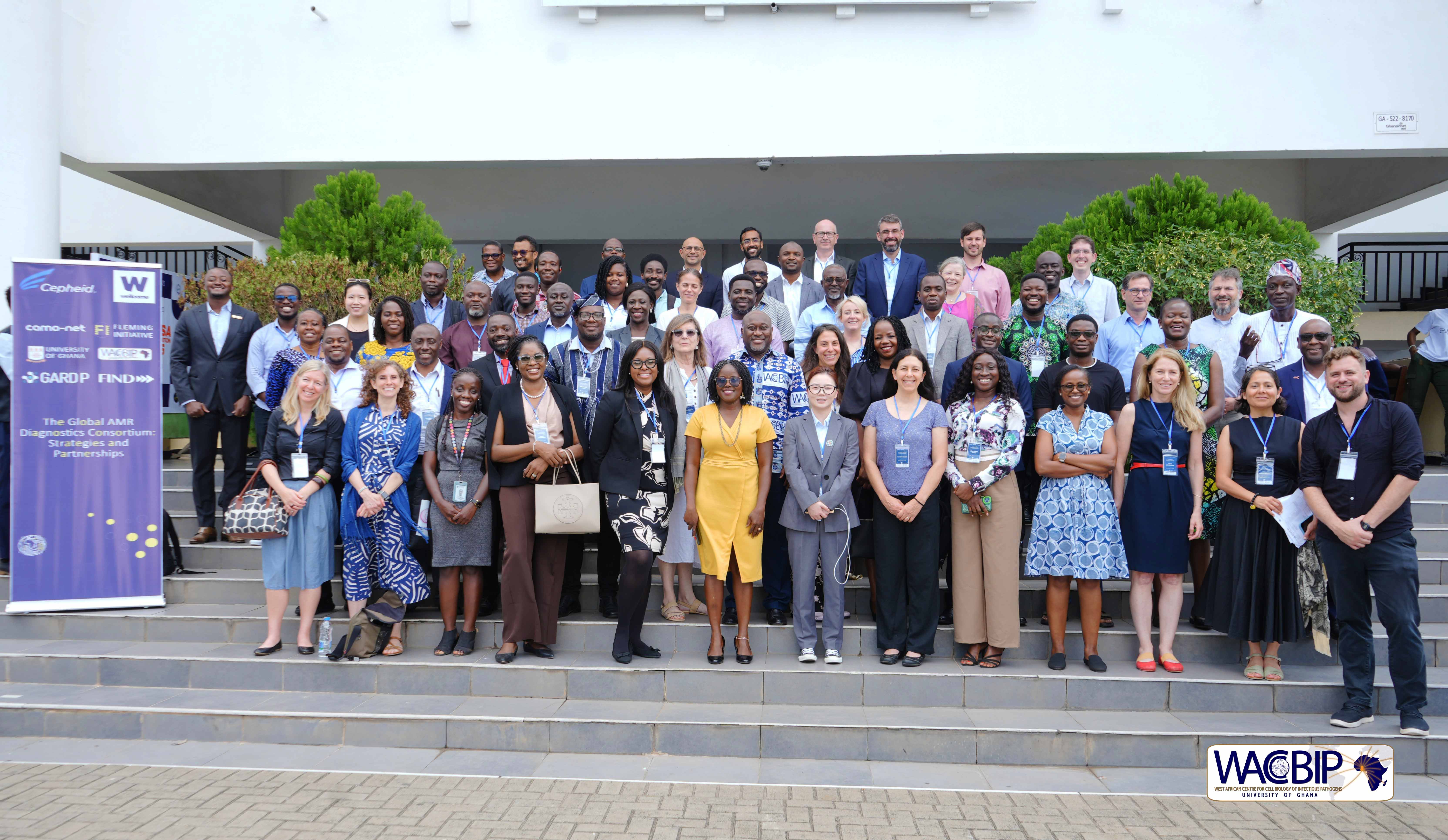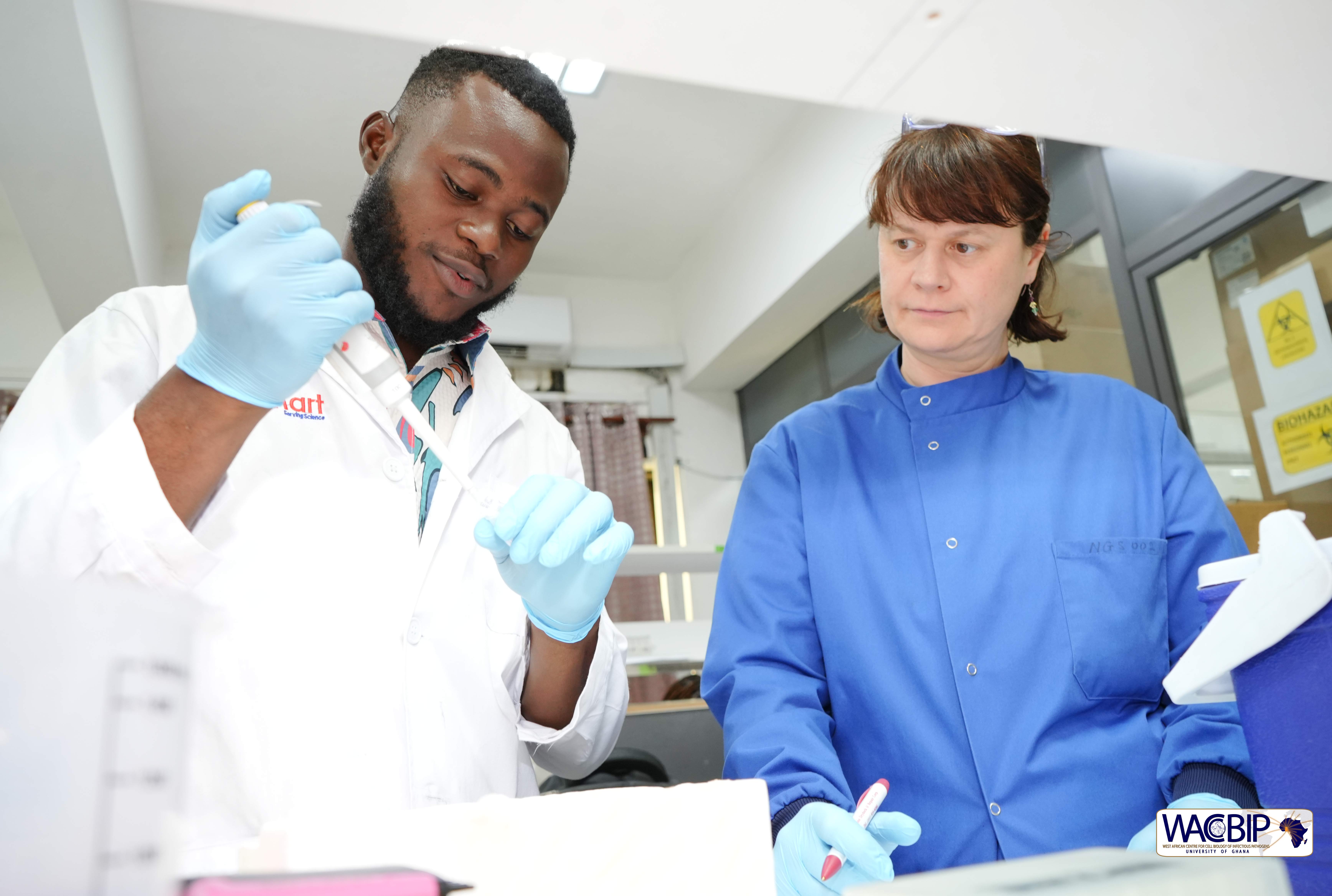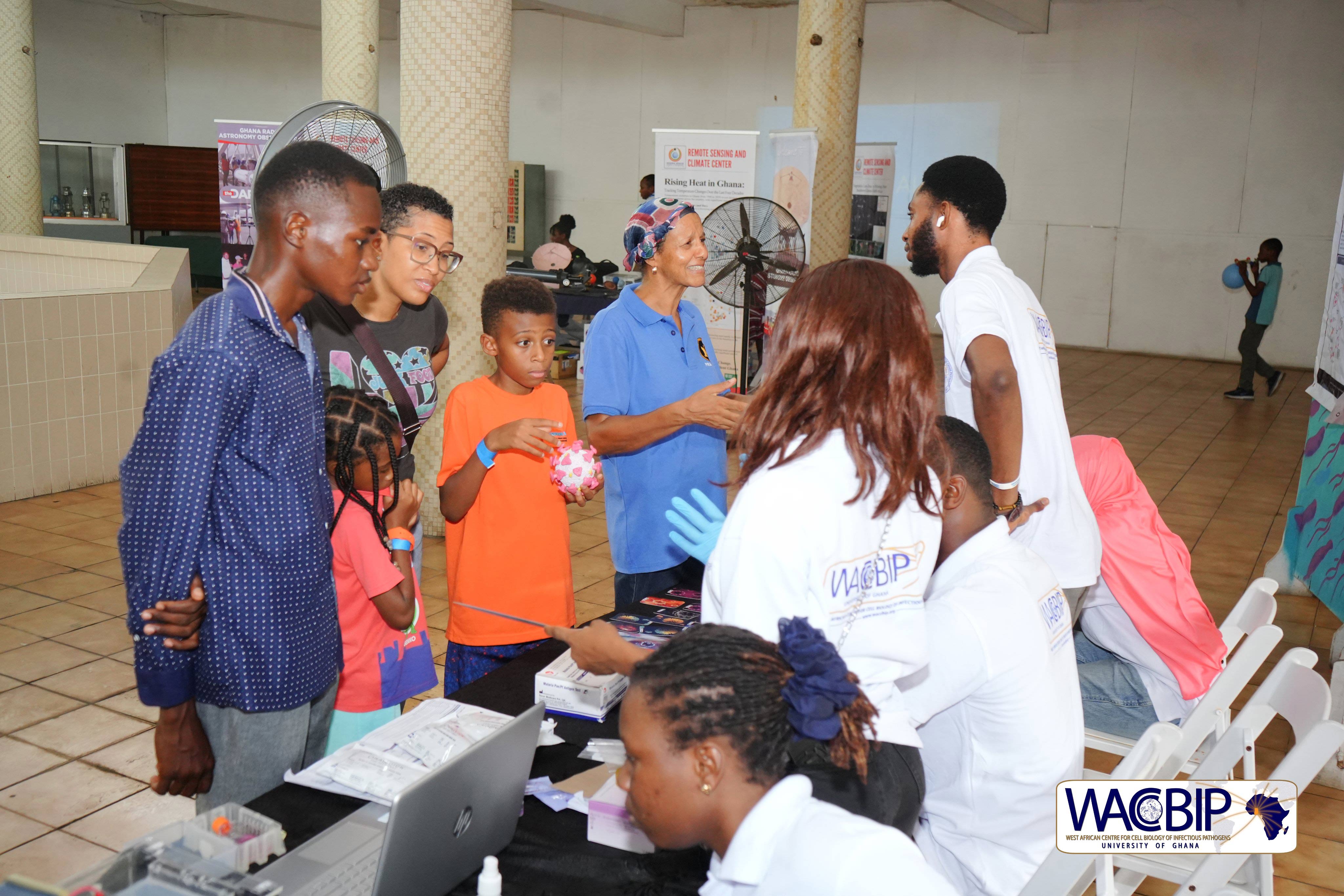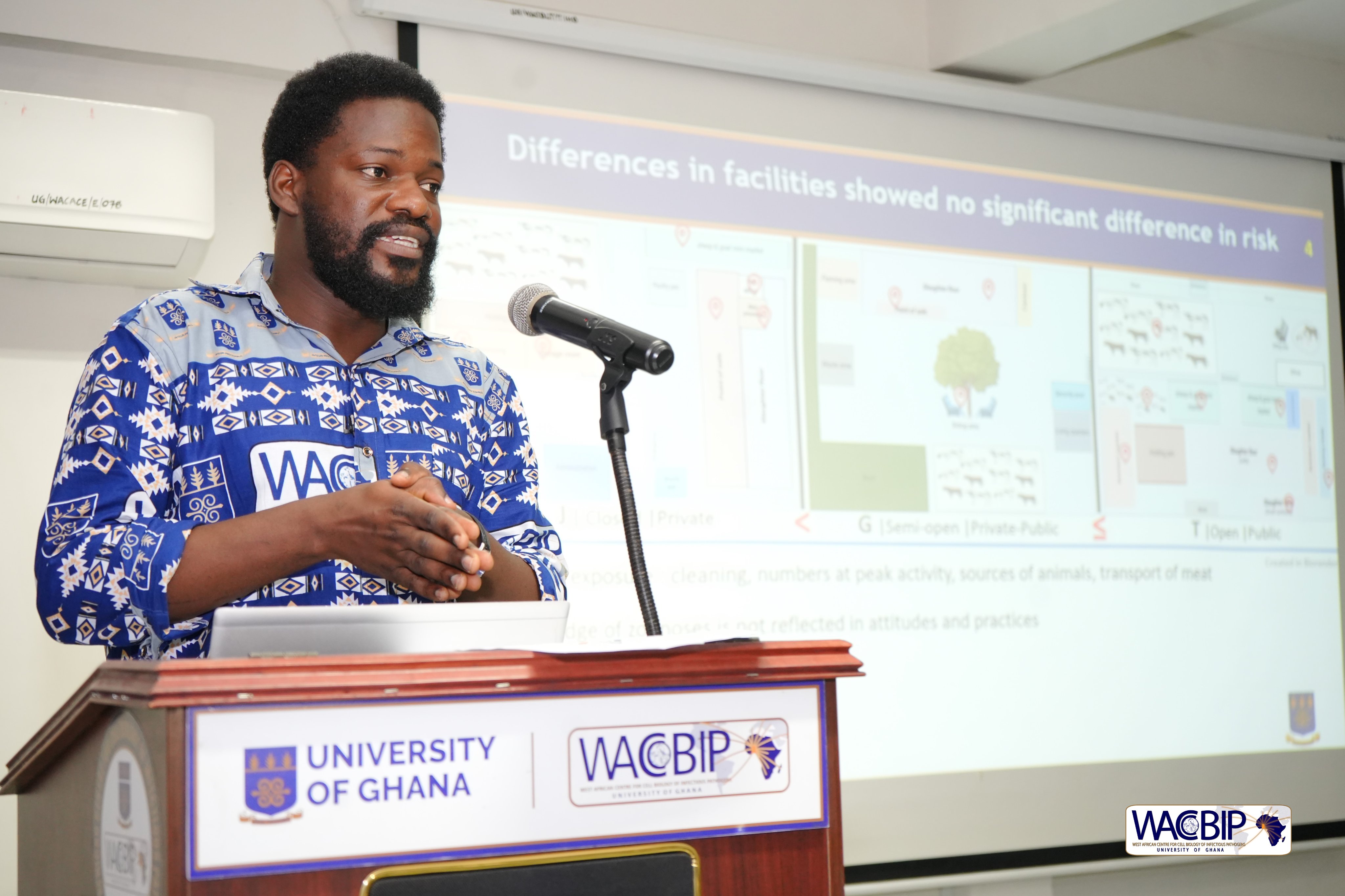Master's Programmes
Our Master’s programmes aim to train the next generation of biomedical scientists in modern academic and professional techniques and to equip them with current knowledge, providing the foundation for scientific research aimed at solving major national and sub-regional challenges in areas of health, agriculture and industry.
Our programmes are research-centred and practical, setting in motion future careers in academia and in industry.
Overview
Coursework components of our programmes are intensive and targeted, covering a plethora of advanced topics in biochemistry and molecular biology, and molecular cell biology of infectious pathogens. All programmes include a course in research methodology and a requirement for the completion of original research work in relevant research areas. All students receive training in the field and laboratory methods used in modern research, empowering them both to understand the research literature and to contribute to new knowledge through research. Students who successfully complete the course work components of their Master’s programme will work with a faculty mentor to define a research project on a pathogen that interests them. They will then be supported to complete original research for their dissertation and for publication in peer-reviewed journals. This training will prepare successful students for jobs in industry, government and the Universities and Health Research Institutions.
Our programmes are targeted at individuals looking to pursue academic, professional, or industry research careers; those wishing to further their current careers by upgrading their biomedical knowledge; individuals shifting careers or taking up positions that require additional training in biochemistry and molecular biology; and those needing advanced study in preparation for entry into PhD programmes in the biomedical sciences.
Each programme is carefully packaged to suit every need and, more importantly, to provide the required training for the conduct of important and effective research.
The MSc in Biochemistry programme is designed to train and produce postgraduates with the necessary advanced knowledge in biochemistry that will equip them to make significant contributions towards national development. The programme is also set up to provide continuous professional development for scientists in the biosciences. Individuals in industry will have the opportunity to gain advanced knowledge in areas of biochemistry and a higher degree without the requirement of a year-long research component.
The programme covers one year of rigorous coursework packed with advanced topics exploring both theoretical and practical aspects of biochemistry. Coursework includes core subjects that cover complex biomolecules, experimental techniques, advanced molecular biology, and research methodology. Students are also presented with a range of elective courses that explore advanced protein chemistry, pesticide biochemistry, advanced enzymology, and mitochondrial biochemistry among others.
Click here to download full course descriptions
Requirements
Admission
Candidates with a good first degree (minimum of a Lower Second Class) in the biological or physical sciences and have taken at least 9 credit hours of courses in Chemistry, Biochemistry and/or Molecular Biology may apply for entry into the MSc Biochemistry programme.
Candidates are also expected to have a minimum of three years of work experience in the biosciences.
Duration
The programme would normally take a minimum of 12 months to complete.
Graduation
To be awarded a Master of Science degree in Biochemistry, a candidate must have taken and passed between 24 and 27 credit hours of coursework, taken part in 3 credit hours of departmental seminars, and produced a dissertation of original research work.
Candidates may visit the University of Ghana website for information on the application process.





